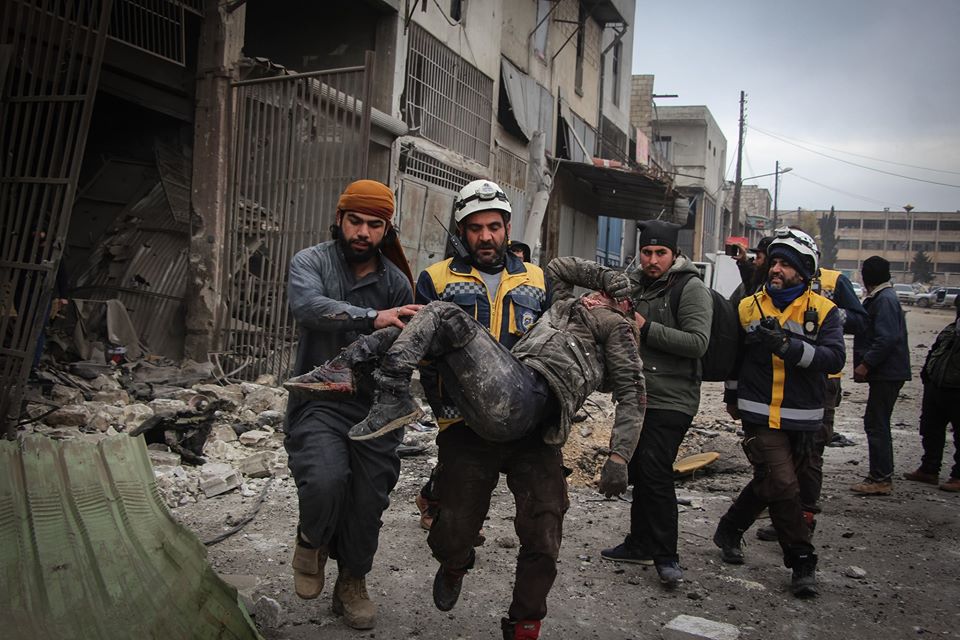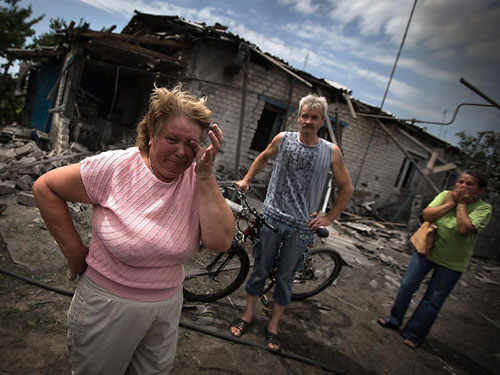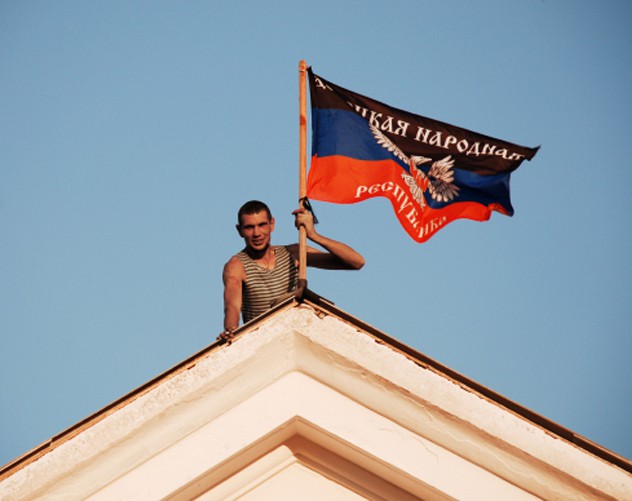The war in Syria has been ongoing for over nine years. The war in eastern Ukraine has entered its seventh year. The two wars are incomparable. Still, they have features in common -- particularly Russia’s crucial role. This role and the lessons Ukraine can learn from the war in Syria were explored during the webinar “The Role of the International Community in Post-Conflict Justice and Humanitarian Recovery. Syrian Lessons" organized by the Ukrainian Helsinki Human Rights Union in July 2020, which focused on issues of post-conflict justice and humanitarian restoration.
After enduring years of war, Syria has turned into a place where numerous crimes against humanity and military crimes continue to occur. Data on the number of victims differs. According to the Syrian Observatory for Human Rights (SOHR), as of March 2018, 353,900 have died, including 106,000 civilians. However, 56,900 missing individuals were not included in this data. SOHR representatives assume that some 100,000 deaths were not registered at all. According to the Violation Documentation Center, as of February 2018, data on 185,980 deaths related to the fighting, including 119,200 were collected.
Experts taking part in the webinar point to ambiguous concepts and misleading narratives regarding the events in Syria.
Destruction and crimes

Ibrahim Olabi, Barrister at Guernica 37 Chambers, and Founder of the Syrian Legal Development Program, emphasizes that the crimes or civilian casualties that took place in Syria were not a result of the war itself.
“When we say X people died, or Y amount of hospitals were destroyed it gives the impression that it was a brutal conflict, but the parties tried their utmost to uphold the laws of war to fight ethically... but the civilian casualties were inevitable because this is war. However, the truth is that the Syrian conflict is characterized by the targeting of civilians, by the deliberate destruction of hospitals, by enforced disappearance, by tortures, by sexual violence, and by the commission of the wide range of systematic crimes from 2011 till now.”
Olabi adds that another issue lies in using the phrase “crimes being committed,” giving the impression that all parties committed crimes -- which is true -- but must be qualified. He emphasizes that[highlight] the vast majority of crimes were committed by the Syrian regime and its allies, which include Russia.[/highlight]
“The problem is that when we conflate [the two scenarios] as the truth and make it appear that all parties commit to a conflict, it makes the question of accountability almost impossible because we do not attribute [in the criminal act] the people who have committed it. It dilutes the water in that sense.”
Talking about political solutions

As expressed by Olabi, many countries are looking for the so-called political solution for Syria. One of the most recent put forward was the formation of a Syrian constitutional committee that includes representatives from the opposition, the regime, and guarantor countries. The committee’s primary aim is to set out the principles of Syria's post-war constitution and to establish it in law.
Olabi considers such a solution a “dangerous, slippery slope for a kind of narrative of the Syrian conflict.”
“It tries to frame it as if 400,000 Syrians were killed because of our article in the constitution.”
The Syria expert stresses that the matter of a constitution is not at the root of the problem and therefore will not solve the problem.
Humanitarian aid

Humanitarian aid is critical for Syria. However, it has been politicized and even criminalized.
“People literally starve to death because aid was not allowed into their areas. Fifteen of those areas were encircled and besieged by the regime,” says Olabi.
Moreover, he is confident that providing more of the kind of help that Western countries do, is not a solution, because the conflict in Syria is a man-made problem, not a natural disaster.
He outlines the circumstances in the region, describing companies that are unlawfully benefitting from Western aid. These companies are linked to financial support from the West meant to alleviate human rights abuses by the government. But the companies exploit the humanitarian aid system by creating seemingly legitimate companies that meet the necessary qualifications to distribute aid. They bid for contracts put up by international aid organizations, then turn around and use the funds to support the very government that commits these abuses.
Reconstruction

Reconstruction is a sensitive topic for Syria. As Olabi explains, the truth regarding refugees returning to their homeland has been much manipulated.
On one hand, Western forces hold the political position of refusing funding for reconstruction without clear evidence of an inclusive political transition.
On the other hand, Russia proclaims the need for funds for reconstruction, but for its own purposes.
"Russian forces have local representatives in Syria who need money to function and to test arms in Syria. Also, there are a lot of Russian companies with business interests. However, Russia has no money to pay," says Olabi.
And this is where Russia manipulates the issue of refugees, claiming that funds for reconstruction will enable the refugees from Europe and Syria’s neighboring countries to return. Olabi clarifies that people will not return to their country anyway due to economic drawbacks, the fear of arrest, and torture.
In effect, refugees are being played as the trump card to promote reconstruction.
Sanctions
Olabi underscores that sanctions should be used as a political tool, not a political solution. Sanctions penalize not only the perpetrators but ordinary people as well. More importantly, the regime cares more for its legitimization than anything else - so this is an opportunity to strike.
Before considering sanctions or bringing the perpetrators to justice, the expert insists a thorough analysis is required to determine what actions would cause the most effective consequences. Together with this task, work is needed on restoring human rights and building the capacity of human rights activists.
Losing the narrative

Olabi points out how [highlight]Syrians made a terrible mistake in thinking that the world knew what was happening in their country.[/highlight]
This largely explains how twisted narratives appeared over time.
For example, false accounts that Syrians were escaping from their homes because of the war were not the case. They were fleeing because of the terrible tortures exacted upon them. Completely a lie was the claim that all parties in the conflict were equal adversaries – nothing could have been farther from the truth. Such rampant deception was readily spread through the ever-expanding propaganda machine.
“Don't undermine Facebook or Twitter. We left Facebook. We had a bad word for those who just stayed on Facebook in Syria -- the ‘Facebook revolutionaries.’ Those were the ones not doing anything, only sharing what's happening on Facebook. But when we left that front, and I say it's a front, Russia picked it up.”
https://www.facebook.com/watch/?v=293597438519179
This video by the Syrian Campaign shows an exhibition dedicated to the war crimes of the regime of Syrian dictator Bashar al-Assad set up before a courtroom in Germany where the first trial on Syrian state torture is taking place
Confirming the truth
https://www.facebook.com/watch/?v=373998843574909
The White Helmets are essential to securing the truth about the Syrian conflict and to providing humanitarian assistance to Syria’s population. This is why they are the target of an incessant Russian propaganda smear campaign
Another participant in the webinar Wayne Jordash, Managing Partner, Global Rights Compliance LLP, highlighted the importance of upholding comprehensive transitional justice, insisting that every approach must start with establishing the truth.
“It's important that the facts are laid out for Ukrainian civilians and for the affected communities and for the long-standing historical record. But it's equally important that that is done so that Ukraine can lobby at the international level to ensure that repressive measures are maintained upon Russia and so that the pursuance of sovereignty or annexation of Crimea is not hidden by Russia's misinformation. And so that we understand exactly what's happening in eastern Ukraine and respond to it in a way which reflects the truth rather than what politically might be at some point convenient or not.”
Olabi summarized the discussion by saying that Syria is still learning its lessons. Participants of the webinar agreed on the necessity of human rights, and that the relevant actors both from Ukraine and Syria need to cooperate and to share their experiences.
Read more:
- From Donbas to Syria: investigation reveals Ukrainians fighting in Russian PMC Wagner
- Ten types of Russian weapons didn’t work well in Syria, the Russian defense minister says
- Russian mercenaries fighting in Ukraine and Syria decorated with state awards, cyber sleuths reveal
- Identical statues to Russia’s “Wagner” mercenaries erected in Syria, occupied Donbas
- How Russian propaganda denies a suspected chemical attack in Syria





